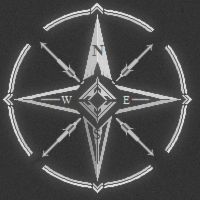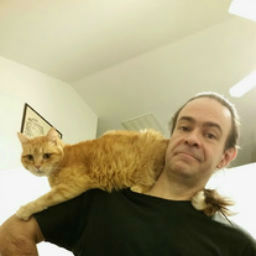Belari-scal (be-lari-skal)
I wasn’t that fluent in Belari-scal, but at least I knew how to say ‘hello’. For kobolds, it translated more to ‘you eaten yet?’, since they always seemed to be hungry. At least, it was a friendly greeting...
Belari-scal is the common language used by kobold tribes across the breadth of the Planus Continent. It’s a soft language that heavily uses vowels interspersed with sporadic, harder sounds in the second syllable. The result is a language that has almost musical quality when spoken.
The language itself is unique, as many scholars believe it may predate the rise of The Ancient Order's ‘common trade language’. Some suggest that Belari-scal may be a direct descendent of the root language that gave rise to the Ancient Order’s own trade dialect. It also may have some connection back to the ancient draconic languages of legend.
Because of the many kobold tribes found along the Belari River region and their trade with Ishnanor, it’s common for many of the locals to be fluent in both the common language of Planari and Belari-scal. This language is often colloquially called ‘kobold’ or ‘koboldese’ outside the Planus regions.
Sample Sentence
...he turned to face the wind on the shore... ʻōnt wae ho marðo ma pīp ʻōnt nūha ma want pavja ʻau wetSpelling & Phonology
| ↓Manner/Place→ | Bilabial | Labiodental | Dental | Alveolar | Palato-alveolar | Palatal | Velar | Glottal |
|---|---|---|---|---|---|---|---|---|
| Nasal | m | n | ɲ | ŋ | ||||
| Stop | p b | t d | k g | ʔ | ||||
| Implosive | ɓ | ɗ | ʄ | ɠ | ||||
| Affricate | ʧ ʤ | |||||||
| Fricative | f v | θ ð | s z | ʃ | x ɣ | h | ||
| Approximant | ʋ | j | ||||||
| Trill | r | |||||||
| Lateral approximant | l |
| ↓Manner/Place→ | Labial-velar |
|---|---|
| Approximant | w |
| Front | Back | |
|---|---|---|
| High | i iː | u uː |
| High-mid | e eː | o oː |
| Low | a aː |
| Pronunciation | Spelling |
|---|---|
| ʋ | w |
| ʔ | ʻ |
| aː | ā |
| eː | ē |
| iː | ī |
| oː | ō |
| uː | ū |
| ̯ |
Grammar
Nouns
| Singular | No affix wēɣ /ʋeːɣ/ dog |
| Plural | Reduplicate last part of last syllable wēɣēɣ /ʋeːˈɣeːɣ/ dogs |
Articles
| Definite | kēt /keːt/ the |
| Indefinite | lāi /laːi̯/ a, some |
- Used for personal names in third person: ‘The Maria has left for school’
Pronouns
| 1st singular | kaill /kai̯ll/ I, me, mine |
| 2nd singular | ʻāut /ʔaːu̯t/ you, yours |
| 3rd singular masc | wae /ʋae̯/ he, him, his, it (masc), its (masc) |
| 3rd singular fem | wāuss /ʋaːu̯ss/ she, her, hers, it (fem), its (fem) |
| 1st plural | ā /aː/ we, us, ours |
| 2nd plural | kae /kae̯/ you all, yours (pl) |
| 3rd plural | lo /lo/ they, them, theirs |
Possessive determiners
| Possessive | |
|---|---|
| 1st singular | wu /ʋu/ my |
| 2nd singular | lai /lai̯/ your |
| 3rd singular masc | ma /ma/ his |
| 3rd singular fem | pai /pai̯/ her |
| 1st plural | ʻaeh /ʔae̯h/ our |
| 2nd plural | nae /nae̯/ your (pl) |
| 3rd plural | ki /ki/ their |
Verbs
| Present | Past | Remote past | |
|---|---|---|---|
| 1st person | Prefix e- emao /eˈmao̯/ (I/we) learn | Prefix oi̯- oimao /oi̯ˈmao̯/ (I/we) learned | Prefix ʋo- womao /ʋoˈmao̯/ (I/we) learned (long ago) |
| 2nd person | Prefix aːi̯- āimao /aːi̯ˈmao̯/ (you/you all) learn | If starts with vowel: Prefix n- Else: Prefix no- nomao /noˈmao̯/ (you/you all) learned | Prefix ko- komao /koˈmao̯/ (you/you all) learned (long ago) |
| 3rd person | If starts with vowel: Prefix l- Else: Prefix lou̯- loumao /lou̯ˈmao̯/ (he/she/it/they) learn(s) | If starts with vowel: Prefix p- Else: Prefix paː- pāmao /paːˈmao̯/ (he/she/it/they) learned | Prefix i- imao /iˈmao̯/ (he/she/it/they) learned (long ago) |
| Future | Particle before the verb: ka - ka mao /ka mao̯/ will learn |
Derivational morphology
Else: Prefix koi̯-
Else: Suffix -unt
Else: Suffix -aːh
Else: Suffix -au̯t
Tending to = Suffix -i
Else: Suffix -ix
Else: Suffix -ae̯ss
Diminutive = Suffix -ai̯rʧ
Dictionary
Numbers
Belari-scal has a base-10 number system:Writing System
The Belari-scal alphabet, known in short as the Belar, is unique among the written languages on the Planus Continent. Other written languages can trace their roots back to Ancient Order dialects. Belari-scal cannot. The written form of Belari-scal is a pictographic language believed to predate The Ancient Order's trade language.
In Belari-scal, each flowing letter of the alphabet represents a simple concept, item, emotion, or action. Some examples would be a letter for ‘flat’, another for ‘grass’, and a third for ‘many’. Therefore, letter order matters, as swapping the order of two letters can convey completely different meanings. Some scholars have likened the written form of Belari-scal to be ‘using smaller words to create compound words’.
For example, ‘flat’ ‘many’ ‘grass’ could mean a grassy plain. But if the letter order was changed to ‘flat’ ‘grass’ ‘many’, someone reading that would understand it to mean ‘an area of flattened grass’.







Love the really clean, concise look of your page, Kummer. It helps that it doesn't distract from the language itself. It's clear you put a lot of thought into this.
Webweaver's Universe
Thanks! Yes. I've been thinking about it for ... oh... months? Months. Many many months, since I needed to reference bits of it in a chapter for a story I'm still writing (this was many chapters back). I'm coming up on needing it again, so I thought "why not take all my paper notes and put them into one article for WorldEmber?" And so.. here it is!